Are you interested in promoting your company or research institute at our conference and exhibition? The focus on electron beam additive manufacturing of our conference provides the ideal platform to provide your company with an exceptional level of international exposure for your products and services.
Contact us to participate in this unique event.
Exhibitors
ALD Vacuum Technologies GmbH
ALD Vacuum Technologies GmbH, based near Frankfurt am Main, is one of the world’s leading manufacturers of vacuum systems for vacuum metallurgy and heat treatment. ALD supplies plant technology for the thermal and thermochemical treatment of metallic materials in solid and liquid form. The company’s expertise lies in its mastery of vacuum process technology and its know-how in designing customized system solutions for these fields.
ALD is the supplier of EBuild®, the world’s largest E-PBF system, which can produce parts up to 850 x 850 x 1000 mm. EBuild® complements ALD’s inert gas atomisers, which are market leaders in the production of high quality spherical metal powders. The combination of large scale powder production and EBuild® systems establishes E-PBF as an economically viable process on an industrial scale.
Colibrium Additive – a GE Aerospace company
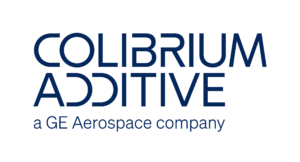 Colibrium Additive – a GE Aerospace company – is a trusted leader in providing metal 3D printers, powders, and services for industrial scale metal additive manufacturing. We are the pioneers in Electron Beam Powder Bed Fusion technology, and our advancements, including the new Point Melt melting scan strategy, have kept us at the forefront of metal additive EBM At Colibrium Additive, we empower our customers to design and build innovative new products that solve manufacturing challenges and improve business outcomes.
Colibrium Additive – a GE Aerospace company – is a trusted leader in providing metal 3D printers, powders, and services for industrial scale metal additive manufacturing. We are the pioneers in Electron Beam Powder Bed Fusion technology, and our advancements, including the new Point Melt melting scan strategy, have kept us at the forefront of metal additive EBM At Colibrium Additive, we empower our customers to design and build innovative new products that solve manufacturing challenges and improve business outcomes.
Freemelt AB
 Founded in 2017 by a team of experienced engineers, Freemelt develops advanced 3D printers for metal components, based in Gothenburg, Sweden. Freemelt primarily serves companies in the defense, energy, and medical technology sectors in Europe and the U.S., helping them innovate and improve production efficiency. Our modular 3D printers use E-PBF (Electron Beam Powder Bed Fusion) technology, offering significantly higher efficiency compared to other machines on the market, while being independent of the type of metal used. To maximize customer flexibility, we use an open source software solution. Our primary materials are tungsten, with a melting point of 3400°C, making it ideal for advanced defense applications and fusion reactors in the energy sector, and titanium, which is perfect for implants.
Founded in 2017 by a team of experienced engineers, Freemelt develops advanced 3D printers for metal components, based in Gothenburg, Sweden. Freemelt primarily serves companies in the defense, energy, and medical technology sectors in Europe and the U.S., helping them innovate and improve production efficiency. Our modular 3D printers use E-PBF (Electron Beam Powder Bed Fusion) technology, offering significantly higher efficiency compared to other machines on the market, while being independent of the type of metal used. To maximize customer flexibility, we use an open source software solution. Our primary materials are tungsten, with a melting point of 3400°C, making it ideal for advanced defense applications and fusion reactors in the energy sector, and titanium, which is perfect for implants.
By supporting the full development journey, we position ourselves as a long-term partner, ensuring smooth transitions and faster time-to-market for industrial customers in sectors like defense, energy, and medical technology. We support the full development journey from concept to serial production through our three 3D printers:
Freemelt® ONE · For open materials research
e–MELT®-iD · For efficient product development
e–MELT®-iM · For optimized for serial production
Hipercone Ltd.
Hipercone Ltd. specializes in the field of computational material science and industrial processes modeling. In close cooperation with industry leaders, we develop and market software tools as well as provide research and development services for prediction of material properties and modeling of physical and chemical processes in additive manufacturing and other industrial applications. Our software tools span a wide range of spatial and temporal scales: from ab initio quantum chemistry simulations of atomic and molecular structure of materials to simulation of device behavior on the macroscale. Hipercone Headquarters are in Jerusalem, Israel.
We have developed a high-throughput GPGPU-enabled simulation package for additive manufacturing (KiSSAM) which accurately captures the diverse physical phenomena occuring during powder bed fusion (PBF) process at the mesoscale: powder layer formation, energy absorption, melt pool dynamics and solidification. The high performance of KiSSAM enables multilayer simulations without compromising the accuracy of the description of the PBF process, helping gain insights into how evolution of single-track morphology affects the morphology and microstructure of entire parts.
JEOL Ltd.
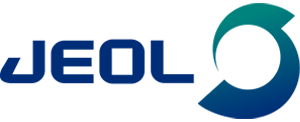 Advancing Manufacturing Capabilities through Electron Beam Melting Technology
Advancing Manufacturing Capabilities through Electron Beam Melting Technology
Electron Beam Powder Bed Fusion (EB-PBF) stands out as a cutting-edge additive manufacturing technology which enables rapid printing speeds with minimal post processing requirements.
JEOL proudly introduces the JAM-5200EBM which is the only EB-PBF machine that harnesses over 70+ years of electron beam innovation, guaranteeing exceptional reliability in manufacturing environments.
Discover how the JAM-5200EBM and JEOL can help revolutionise your production processes and bring unparalleled manufacturing capabilities to your organisation.
Leybold GmbH
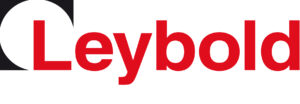 As a pioneer in vacuum technology, Leybold offers a wide range of state-of-the-art vacuum pumps, standardized and fully customized vacuum solutions and services, complemented by well suited vacuum equipment.
As a pioneer in vacuum technology, Leybold offers a wide range of state-of-the-art vacuum pumps, standardized and fully customized vacuum solutions and services, complemented by well suited vacuum equipment.
We are able to meet even the most demanding requirements of highly complex applications, helping our customers to succeed. From heavy-duty processes in metallurgy, clean room conditions in world-renowned research and development institutes to coating applications on the smallest scale, Leybold offers top performance. Vacuum technology is used in numerous areas of our everyday lives, such as air conditioning systems, flat screens and automotive applications. However, it is also used in high-tech processes such as the coating of microchips, CDs and DVDs as well as in the manufacture of optical glass and analytical equipment.
We have been at the forefront of vacuum innovation since our foundation in 1850, and our dedicated employees are at the heart of our company’s success. Their ability to innovate, their commitment and their know-how are the reasons why customers all over the world place their trust in us.
pro-beam additive GmbH
 pro-beam additive GmbH is part of the pro-beam Group, a global leader in the field of electron beam technology. The company enables two additive manufacturing processes for metal components – EBM (Electron Beam Melting) and WEBAM (Wire Electron Beam Additive Manufacturing) – as well as corresponding machines.
pro-beam additive GmbH is part of the pro-beam Group, a global leader in the field of electron beam technology. The company enables two additive manufacturing processes for metal components – EBM (Electron Beam Melting) and WEBAM (Wire Electron Beam Additive Manufacturing) – as well as corresponding machines.
EBM is especially suitable for compact as well as highly detailed metal components. With the company’s efficient EBM system PB EBM 30S customers can build parts from a batch size of 1 up to serial production in a powder bed. The process is reproducible and ensures high-quality and fast production. At the same time, processes are parallelized so that users benefit from maximized productivity.
WEBAM is suitable for large components made of high-performance metals as well as reactive metals. With the wire-based PB WEBAM 100 customers can manufacture their components in a flexible, quick and material-efficient manner, while multi-material components are possible. The process is reproducible and leads to very good surface qualities.
REM Surface Engineering
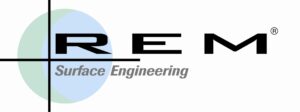 REM Surface Engineering is a global provider of surface engineering solutions. REM’s Extreme ISF® Process is a suite of subtractive, isotropic superfinishing processes tailored to the metal additive manufacturing industry. The technology can reduce the extreme surface roughness associated with metal AM while removing/remediating surface and near-surface defects. Applicable alloys include titanium, nickel-based, copper, steel, stainless steel, and refractory alloys. Some key benefits for AM components include increase bending fatigue resistance, reduced pressure drop, improved corrosion resistance, and improved cleanliness. REM’s processes can remove support structures and accommodate complex geometries such as internal channels and lattices. REM offers the Extreme ISF Process as an outsourced solution or as a complete technology installation.
REM Surface Engineering is a global provider of surface engineering solutions. REM’s Extreme ISF® Process is a suite of subtractive, isotropic superfinishing processes tailored to the metal additive manufacturing industry. The technology can reduce the extreme surface roughness associated with metal AM while removing/remediating surface and near-surface defects. Applicable alloys include titanium, nickel-based, copper, steel, stainless steel, and refractory alloys. Some key benefits for AM components include increase bending fatigue resistance, reduced pressure drop, improved corrosion resistance, and improved cleanliness. REM’s processes can remove support structures and accommodate complex geometries such as internal channels and lattices. REM offers the Extreme ISF Process as an outsourced solution or as a complete technology installation.
REM’s ISF Technologies have been used to enhance the performance of parts in many industries, including Aerospace, Space, Medical, Heavy Equipment, and many others. REM locations are ISO 9001:2015 and AS9100:2016 Rev. D certified.
Wayland Additive Ltd.
![]() Wayland Additive was founded in 2019 to bring to market a new generation of electron beam additive manufacturing machines. Wayland’s objective is to simplify the electron beam process and machine operation whilst increasing the breadth of process capability thereby increasing the technological and market reach for electron beam AM. Wayland’s hot part process, as opposed to a hot bed process, creates stress free parts with less structural scaffolding, higher productivity and lower total part costs. With a strong heritage in electron beam systems, charged particle physics and additive manufacturing Wayland has created a new technology, NEUBEAM®, that builds on the best of electron beam’s capabilities whilst taking away the constraints. With machines now in the field and in production Wayland is looking for pioneers and innovators to join them in their AM journey.
Wayland Additive was founded in 2019 to bring to market a new generation of electron beam additive manufacturing machines. Wayland’s objective is to simplify the electron beam process and machine operation whilst increasing the breadth of process capability thereby increasing the technological and market reach for electron beam AM. Wayland’s hot part process, as opposed to a hot bed process, creates stress free parts with less structural scaffolding, higher productivity and lower total part costs. With a strong heritage in electron beam systems, charged particle physics and additive manufacturing Wayland has created a new technology, NEUBEAM®, that builds on the best of electron beam’s capabilities whilst taking away the constraints. With machines now in the field and in production Wayland is looking for pioneers and innovators to join them in their AM journey.
Media Partner
Metal Additive Manufacturing magazine
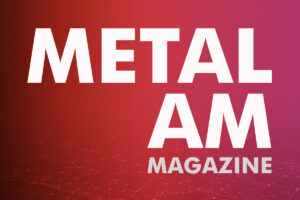 Metal Additive Manufacturing magazine is a global publication that showcases the latest commercial and technical advancements in the world of metal 3D printing. We cut out the hype, kill the buzzwords and discuss a range of topics from the industry, including market insights, applications, materials, equipment, research, events, and software.
Metal Additive Manufacturing magazine is a global publication that showcases the latest commercial and technical advancements in the world of metal 3D printing. We cut out the hype, kill the buzzwords and discuss a range of topics from the industry, including market insights, applications, materials, equipment, research, events, and software.
Published quarterly in print and online, each issue features a number of exclusive in-depth articles and special features on metal Additive Manufacturing, as well as our extensive industry news rundown. Each new issue of Metal AM, and the complete archive, is available to download free of charge. Discover more here.
Sponsors
Collaborative Research Center 814 – Additive Manufacturing
 The CRC 814 – Additive Manufacturing deals with the basic research of additive manufacturing processes. The CRC 814 creates the scientific basics for the production of geometrically complex and highly functionalized multi-material parts, as well as for computer-aided component design and component testing.
The CRC 814 – Additive Manufacturing deals with the basic research of additive manufacturing processes. The CRC 814 creates the scientific basics for the production of geometrically complex and highly functionalized multi-material parts, as well as for computer-aided component design and component testing.
In the future, components should be produced from plastics or metal-based materials without specific tooling. Away from rapid prototyping to manufacturing, these technologies are empowered by the CRC 814 to fabricate serial components in the desired quality. Since 2011, more than 35 scientists are working on this major interdisciplinary project at the FAU. The third funding period started in July 2019.
Collaborative Research Center / Transregio 103 – Superalloy Single Crystals
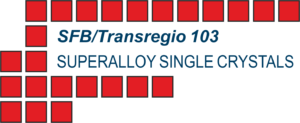 The Collaborative Research Centre SFB/Transregio 103 “From atoms to turbine blades – a scientific basis for a new generation of single crystal superalloys” is funded by the Deutsche Forschungsgemeinschaft (DFG). The partner universities who collaborate in SFB/Transregio 103 are the Ruhr-Universität Bochum (RUB) and the Friedrich-Alexander-Universität Erlangen-Nürnberg (FAU). Three external projects from the Max-Planck-Institut für Eisenforschung (MPIE), the Forschungszentrum Jülich (FZ Jülich) and from the German Aerospace Center (DLR) strengthen the activity.
The Collaborative Research Centre SFB/Transregio 103 “From atoms to turbine blades – a scientific basis for a new generation of single crystal superalloys” is funded by the Deutsche Forschungsgemeinschaft (DFG). The partner universities who collaborate in SFB/Transregio 103 are the Ruhr-Universität Bochum (RUB) and the Friedrich-Alexander-Universität Erlangen-Nürnberg (FAU). Three external projects from the Max-Planck-Institut für Eisenforschung (MPIE), the Forschungszentrum Jülich (FZ Jülich) and from the German Aerospace Center (DLR) strengthen the activity.
In SFB/TR 103, different disciplines join forces: processing and manufacturing (melting and casting, additive manufacturing, heat treatment, HIPing), materials testing (elastic constants, creep, high temperature fatigue), advanced materials characterization (SEM, TEM and AP) and scale bridging materials modelling (first principle calculations, phase field modelling, discrete dislocation modelling, finite element analysis).